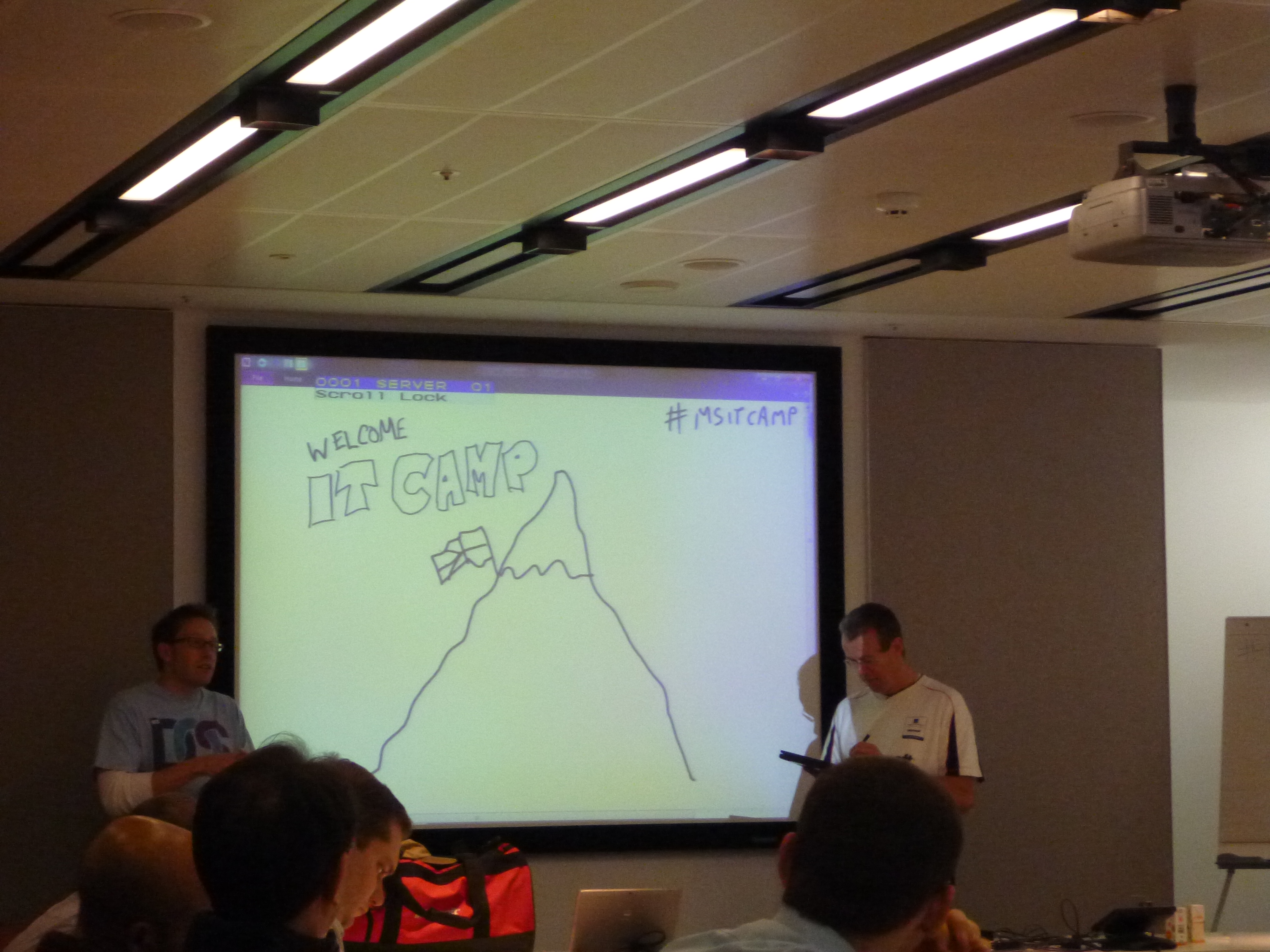The day that we took the IT Pro's Camping!
We aren’t all the same, we learn differently, we work in a wide range of business that have very different needs, and we learn at different speeds. So spending a day being lectured to on technical stuff, isn’t going to be the right answer for everyone and no matter how good the speaker is he has to tread a middle line to keep the experts in a topic interested while ensuring those new to it aren’t left behind. Talks on overall positioning or to show off some new cool stuff work well, but if you want to know how to get stuff done and get inside the technology, then a different approach is needed.
So Simon May and I have cooked up a different style of event, an IT Camp, where the content is driven by the audience, but within a general topic areas. We wanted to test this out by running a limited public beta, so we invited a select group of IT professional "guinea pigs" to a day in London to test the idea. We thought a basic day of clustering and server virtualisation would have the broadest appeal as Hyper-V is being more and more widely adopted.
One of the problems with this kind of unstructured event is that we didn’t have the usual pile of PowerPoint decks as hand-outs, Simon manned the whiteboard and I manned the keyboard. One thing I thought would be useful would be to give out a list of what we used and referred to and as this could have general appeal I have included it here as well.
My rough guide for installing Hyper-V server and adding it to a cluster with iscsi storage is:
Software:
- Hyper-V Server 2008 R2 with sp1 is a lightweight (based server core for those that know it) edition of Windows Server that is not licensed and can only be used to run Hyper-V.
- Windows Server 2008 R2 with sp1 Evaluation edition If you aren’t comfortable using the minimalist interface in Server core then you could use this and enable the hyper- role on it. You will also need it to create some VM’s with
- Core Configurator is a PowerShell based interface to make Hyper-V server and server core easier to manage directly than it is with SConfig
- iscsi target software allows you to emulate shared storage using Virtual Hard Disks (.VHD)
- RDCMan allows you to control a lot of remote desktop sessions
- Zoomit (part of Windows sysinternals) allows you to pan and zoom around your screen when presenting
- System Center Virtual Machine Manager 2012 manages large server virtualisation deployments and is now in release candidate. There’s also a prebuilt VHD which can integrate into your test sandbox / demo rig here
Microsoft Virtual Academy
- Microsoft Virtualization for VMware Professionals - The Platform
- Microsoft Virtualization for VMware Professionals – Management
- System Center Virtual Machine Manager 2012
Installation and setup guides..
Hyper-V Survival Guide on TechNet , this has sections on dynamic memory networking, clustering with iscsi and just about anything else you’ll need
Community Shared Links at the Event
- Hurrah - a hibernating Hyper-V laptop!
- SCVMM 2012 – Bare Metal Deployment of Hyper-V Servers
- Running Domain Controllers in Hyper-V
- The Conversation on Twitter
And some final words on camping: The way to prepare for your team for putting a tent up in a storm.... Practice putting the tent up in light winds with all your team blindfolded and your leader's arm tied to a tree. The leader then gives the team instructions to build the tent.
